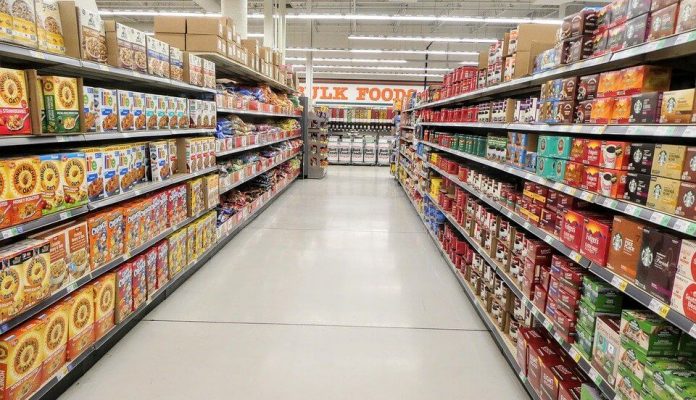

Food is essential for the survival of a human being. Article 21 not only includes the Right to Life but also, the Right to Food. Right to Food was discussed in brief in the case of People’s Union for Civil Liberties v. Union of India and Others (PUCL) (2001) through a writ petition. The Right to Food is also regarded as a fundamental duty of the state which is provided in Article 47 of the Indian Constitution. Many restaurants, food stalls, factories, etc., are being opened every day in almost all parts of the world. These places must ensure proper sanitation and hygiene in manufacturing, processing, preparation, etc. International organizations are being run to ensure that customers obtain high quality and safety while consuming food.

People who want to start a business in manufacturing or processing of food can have some certification marks on their product so that a customer can rely on such certification marks while buying a product. There are some standards or marks to be voluntarily adopted while manufacturing food products which are described below:-
There are other certifications launched by the Quality Council of India such as IndiaHACCP and IndiaGHP for maintaining food quality and hygiene.

Before 2006, Food Industry was regulated by a lot of Acts that focussed on sanitation, quality, hygiene, and adulteration or mixing of poisonous substances in food which are stated below:-
Food businesses have to comply with the provisions of the Food Safety and Standards Act, 2006 (FSS) to deal with manufacturing or processing or supply of food products.
The Food Safety and Standards Act became effective in 2011 and repealed all of the above-mentioned Acts and Orders. This Act regulated the manufacture, storage, distribution, sale, and import of food products to ensure the availability of safe and nutritious food for human consumption. It also established the Food Safety and Standards Authority of India (FSSAI). It also states the responsibilities of food operators, manufacturers, packers, wholesalers, distributors, and sellers. The Food Authority and the state food safety authorities shall be responsible for the enforcement of this Act.
FSSAI comprises a chairperson and twenty-two members out of which one-third shall be women. It also consists of a Central Advisory Committee which looks after the interests of the food industry, agriculture, consumers, relevant research bodies, and food laboratories. This Act contains provisions regarding the packaging and labeling of food and the prohibition of unfair trade practices. Packaging of food must contain the name of the food, list of ingredients, date of manufacturing, net quantity, etc.
FSSAI categorizes food products into two types – Standardized and Non-standardized. Standardized food products are those which do not require approval before manufacture, sale, distribution, or import. Non-standardised food products are those which do not have any standards prescribed for them so prior approval is required for such products. Foods imported into India have to follow the FSS Act, Rules and Regulations. If the food articles are standardized, the importer only needs an FSSAI license to import them. The importer also needs to comply with FSSAI regulations for the sale and distribution of food products. If a new or unknown food article is introduced for import, it is considered non-standardized and requires product approval under Section 22 of the FSS Act, 2006. The FSS Act, 2006 does not apply to food being exported out of India.
Licenses available under FSSAI are:-
Functions of FSSAI are:-
The Indian food industry must follow standards of food products which are regulated by the Food Safety and Standards Act are stated below:-
FSSAI ascertains some factors to ensure quality, such as:
The Indian food industry is not only regulated by the Food Safety and Standards Act but it is also regulated by International organizations which monitor the safety and hygiene of the food. They are mentioned as follows:-

Every country has its different food laws according to the needs and well-being of the citizens of the country. Various countries around the globe implement the regulations in their way which can be seen below:-
The Canadian Food Inspection Agency is the authority responsible for safeguarding the quality of food for securing the health of the citizens. A regulated control is kept on frozen foods in Canada. It has adopted the Hazard Analysis and Critical Control Point (HACCP) System for the regulation of food. The food industry in Canada is regulated by the Canadian Food Inspection Agency Act, Food and Drugs Act, Meat Inspection Act, Canada Agricultural Products Act, and the Fish Inspection Act and their respective regulations.
Food Supply in the U. S. is regulated by the Food Safety Modernization Act (FSMA). The Food Code has been published by the Food and Drug Administration for regulating food industries, restaurants, and grocery stores. The Food and Drug Administration (FDA) is responsible for implementing all regulations and laws on food.
Food safety is jointly implemented in Australia and New- Zealand by Food Standards Australia-New Zealand (formerly Australia New Zealand Food Authority). This Authority makes sure that the additives or continents are not added to food.
Food is regulated in China by the State Food and Drug Administration. The safety of food is ensured through the Food Hygiene Law of the People’s Republic of China. It follows HACCP and Codex Alimentarius for maintaining the hygiene of food.
Regulation of manufacture, import, and sale of food is done through acts like Food Safety Basic Law, Food Sanitation Law, etc. Food Safety is controlled under the jurisdiction of the Department of Food Safety under the Pharmaceutical and Food Safety Bureau.
Every process in the food supply is monitored by the European Food Safety Authority (EFSA). This authority provides its scientific ideas on emergency issues of food.
Food safety is very important for providing nutrition and care to people. Stricter food laws should be enforced so that adulteration or contamination is not done to food. Unhygienic food can cause much damage to a person’s health, and so various authorities must adhere to guidelines provided by the government. Various organizations are contributing to food safety, and they provide standards to which businesses must strictly comply. Penalties must be enforced for whoever is found guilty of any act which can cause any damage to food consumed by the people.
FSSA, 2006 is enforced by the Food Safety and Standards Authority of India and State Food Authorities.
Improvement notice is issued by Designated Officer (DO) and it is issued if the food business operator fails to comply with Section 32 of the FSS Act, 2006.
The license can be canceled by the Designated Officer if the food business operator fails to comply with the improvement notice.
An appeal can be made within fifteen days of the notice served by the person or period specified in the improvement notice whichever is less
Food business operators who operate in more than two states must get a central license for head office and a separate license depending upon the turnover of the business.
Various regulations are implemented by FSSAI such as Food Safety and Standards (Licensing and Registration of Food Businesses) Regulation, Food Safety and Standards (Food Products Standards and Food Additives) Regulation, Food Safety and Standards (Packaging and Labeling) Regulation, Food Safety and Standards (Contaminants, Toxins, and Residues) Regulation, etc.
For any step in the food supply, food safety comes first. People involved in this chain of business must abide by the standards prescribed by the Food Authority which can lead to a good and clean environment.
Students of Lawsikho courses regularly produce writing assignments and work on practical exercises as a part of their coursework and develop themselves in real-life practical skills.
LawSikho has created a telegram group for exchanging legal knowledge, referrals, and various opportunities. You can click on this link and join:
Follow us on Instagram and subscribe to our YouTube channel for more amazing legal content.
